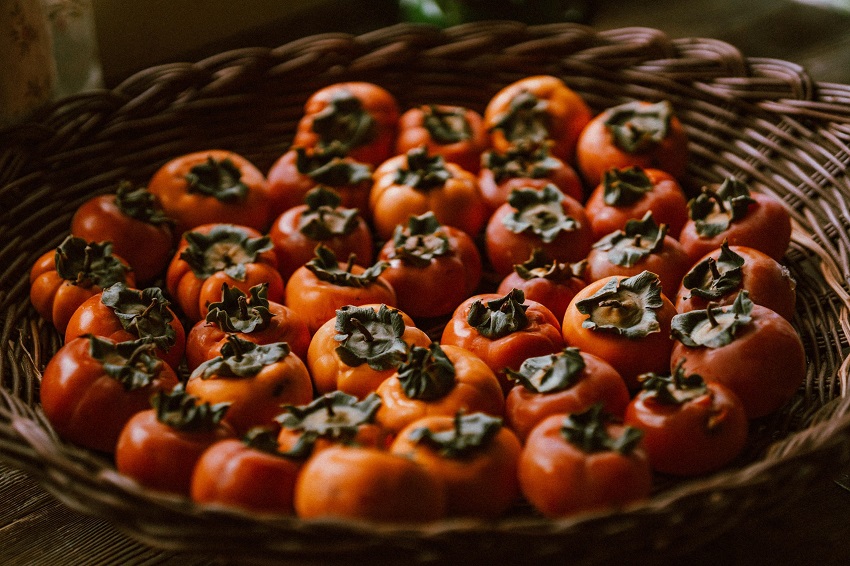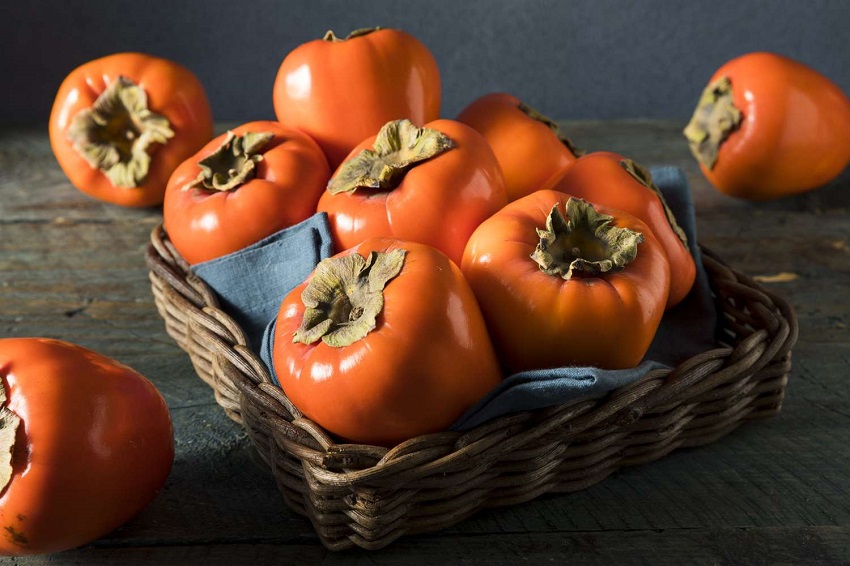
18 Jul When Should I Eat Persimmon?
Persimmons are delightful fruits that offer a burst of sweetness and a host of health benefits. If you’ve ever wondered when the best time to enjoy this delicious fruit is, you’ve come to the right place. In this article, we will explore the optimal time to eat persimmons, the various types available, and their incredible nutritional value. So, let’s dive in and uncover the perfect timing for indulging in this flavorful treat. The content is introduced by https://ledmain.com/
Introduction to Persimmons
Before we delve into the ideal time to eat persimmons, let’s understand what persimmons are and the different varieties that exist. Persimmons are orange or reddish fruits that originated in East Asia but are now enjoyed worldwide. There are two main types of persimmons: astringent and non-astringent. The astringent variety, such as the Hachiya persimmon, must be fully ripe and soft before eating. On the other hand, non-astringent varieties like the Fuyu persimmon can be consumed when still firm.
When Are Persimmons in Season?
Persimmons have a specific season when they are at their peak freshness and flavor, making them a great ingredient for persimmon recipes. The exact time may vary depending on your location, but generally, persimmons are in season during the late fall and early winter months. This is when you can find the widest variety of persimmons available in the market. It’s important to note that while Fuyu persimmons can be consumed when still firm, other varieties like the Hachiya persimmon should only be eaten when fully ripe and soft.
Ripeness Matters
Ripeness plays a crucial role in determining the right time to eat persimmons. As mentioned earlier, astringent persimmons like the Hachiya variety need to be fully ripe and soft before they can be eaten. If consumed before they are ripe, they can have an unpleasant, mouth-puckering taste due to their high tannin content. Non-astringent persimmons, like the Fuyu variety, can be enjoyed when still firm or slightly soft, similar to the texture of an apple. The sweetness and flavor intensify as they continue to ripen.
Signs of Ripeness
To determine the ripeness of a persimmon, look for the following signs:
- Color: A ripe persimmon should have vibrant hues of orange or red, depending on the variety.
- Texture: Gently press the fruit with your fingers. It should yield slightly to pressure without being too mushy.
- Softness: For astringent persimmons, they should be very soft to the touch, almost like a water balloon ready to burst. Non-astringent persimmons can be slightly firm or slightly soft, depending on your preference.
Best Time to Enjoy Persimmons
The best time to enjoy persimmons depends on your personal taste preference and the variety of persimmon you have. Here are some guidelines to help you make the most of this fruit:
- Astringent Persimmons (e.g., Hachiya): Wait until the persimmon is fully ripe and has a jelly-like consistency. This usually occurs when the fruit is extremely soft and almost mushy. At this point, the astringency disappears, and you can savor the sweet, rich flavor.
- Non-astringent Persimmons (e.g., Fuyu): Non-astringent persimmons can be enjoyed when they are still firm or slightly soft. They have a crisp texture and a subtly sweet taste. If you prefer a crunchier experience, consume them when they are firm. For a softer texture and sweeter flavor, allow them to soften slightly.
Nutritional Benefits of Persimmons
Aside from their delectable taste, persimmons are packed with nutrients that contribute to a healthy diet. They are an excellent source of dietary fiber, vitamins A and C, manganese, and antioxidants. Persimmons also contain beneficial plant compounds like flavonoids, which have been linked to numerous health benefits, including reduced inflammation and improved heart health.
Conclusion
Persimmons are a delightful fruit that can be enjoyed during the late fall and early winter months. The optimal time to eat persimmons depends on the variety you have. Astringent persimmons like the Hachiya should be consumed when they are fully ripe and soft, while non-astringent persimmons like the Fuyu can be enjoyed when still firm or slightly soft. Remember to choose persimmons that display vibrant colors, have the right texture, and are at the desired level of softness for an enjoyable culinary experience.
FAQs (Frequently Asked Questions)
- Are persimmons good for you?
Yes, persimmons are highly nutritious fruits. They are rich in fiber, vitamins, minerals, and antioxidants, making them a healthy addition to your diet.
- Can I eat persimmons if they are not fully ripe?
For astringent persimmons, it’s best to wait until they are fully ripe and soft before consuming them. Non-astringent persimmons can be enjoyed when still firm or slightly soft.
- How can I incorporate persimmons into my diet?
Persimmons can be eaten on their own as a snack, added to salads, used in smoothies, or incorporated into various recipes like desserts, jams, and chutneys.
- Do persimmons have any side effects?
While persimmons are generally safe to consume, some people may experience an allergic reaction. Additionally, consuming unripe astringent persimmons can cause an unpleasant, mouth-puckering sensation.
- How should I store persimmons?
To extend the shelf life of persimmons, store them at room temperature until they reach the desired level of ripeness. Once ripe, you can refrigerate them to prolong their freshness for a few more days.

Sorry, the comment form is closed at this time.